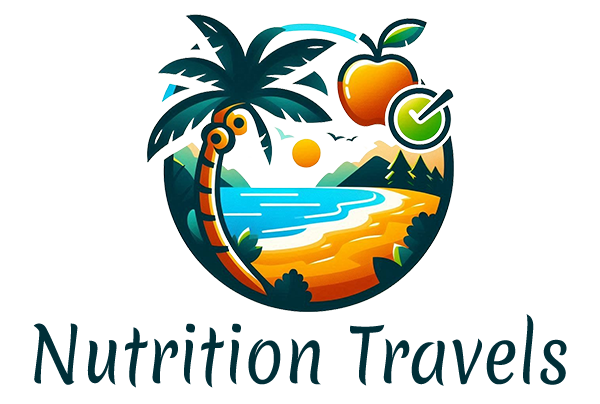Cinnamon during pregnancy requires balance. Small culinary amounts are generally considered safe for most pregnant people, but taking large amounts — especially concentrated supplements or large daily doses of Cassia cinnamon — can carry risks. If you plan to use cinnamon regularly while pregnant, choose safer forms and check with your healthcare provider.
You’re sitting on a cozy winter evening, a warm drink in front of you, the rich aroma of cinnamon filling the air. Feels comforting, right?
But the moment you’re pregnant, the questions start pouring in:
Is cinnamon safe for pregnant women? Is it a friend to your body and baby, or a hidden foe?
Here’s the good news: the answer isn’t black or white. Let’s uncover the full story — from benefits that can amaze you, to risks you definitely need to watch out for.

What is Cinnamon and Why Does Everyone Love It?
Cinnamon is a spice made from the bark of trees in the Cinnamomum family. There are different types — the two common ones in food are Cassia (widely sold, stronger flavor) and Ceylon (often called “true” cinnamon, milder). The compounds that give cinnamon its flavor also have biologic activity — antioxidants and compounds that may affect blood sugar — but the safety profile differs between types because Cassia contains more coumarin, a compound that can harm the liver in high doses.
-
In the kitchen:
the secret to fluffy cakes, a warm touch to meats, and a magical hint in coffee and tea.
-
In ancient medicine:
a remedy for the stomach, a natural sugar balancer, and an immune booster.
-
In beauty:
a rich aromatic scent found in oils and skincare products.
Simply put… cinnamon is “the spice of magic” — uniting taste and health benefits in every pinch.

Potential Health Benefits of Cinnamon in Pregnancy (When Used in Culinary Amounts)
-
Rich in Antioxidants
Cinnamon contains plant compounds with antioxidant properties. While these can help protect cells from oxidative stress in general, there’s no direct evidence that cinnamon reduces infection risk in pregnant people.
-
Possible Blood Sugar Support
Some studies in non-pregnant adults suggest cinnamon may help improve blood sugar control. Evidence in pregnancy is limited, so it should never replace medical treatment — but a sprinkle in food is unlikely to cause harm for most.
-
Gentle Comfort for Nausea
The aroma and flavor of cinnamon may help some people tolerate certain foods better. While it’s not a proven anti-nausea treatment, small amounts in tea or porridge can be soothing.
-
Anti-inflammatory Potential
Laboratory studies suggest cinnamon has anti-inflammatory effects. In culinary amounts, it may provide mild comfort, though more research is needed to confirm specific benefits in pregnancy.

But Cinnamon Has Another Side… Risks You Must Know!
Before you get too excited and sprinkle it everywhere, here are the potential dangers:
- Coumarin (liver risk): Cassia cinnamon contains substantially more coumarin than Ceylon. Excessive coumarin intake over time can be hepatotoxic. European authorities set a tolerable daily intake (TDI) for coumarin to limit this risk. Pregnant people should avoid high, regular doses of Cassia cinnamon or concentrated supplements.
- Uterine stimulation — evidence is limited: Animal and in-vitro studies have shown that cinnamon extracts can affect smooth muscle. However, human clinical evidence that ordinary dietary cinnamon induces uterine contractions or causes miscarriage is lacking. Because the data are limited and some traditional sources caution against high doses during early pregnancy, the prudent approach is to avoid high or concentrated amounts and check with your clinician.
- Blood sugar drop / interactions: Cinnamon can influence blood sugar modestly. If you are on glucose-lowering medications, discuss cinnamon use with your doctor to avoid hypoglycemia.
- Other issues: Very large amounts could worsen heartburn or interact with medications; supplements are not recommended in pregnancy without medical supervision.
Possible Risks and Side Effects of Cinnamon in Pregnancy
-
Coumarin and Liver Health
Cassia cinnamon contains much higher levels of coumarin than Ceylon. Regular high intakes of coumarin over time can harm the liver — so daily large amounts of Cassia are best avoided.
-
Uterine Stimulation — Evidence Is Limited
Some lab and animal studies suggest cinnamon extracts can affect uterine muscle, but there’s no strong human evidence that normal culinary use causes miscarriage. Out of caution, high-dose supplements are not advised.
-
Blood Sugar Interactions
Cinnamon can modestly lower blood sugar. If you take medication for diabetes, using large amounts might increase the risk of hypoglycemia — so it’s best to check with your doctor.
-
Digestive Discomfort
Very large amounts of cinnamon may worsen heartburn or cause stomach upset in some people.
-
Supplements Are Not the Same as Food
Concentrated cinnamon capsules or oils can deliver far higher doses than food and are not recommended during pregnancy without medical supervision.
Bottom line: Cinnamon isn’t completely off-limits, but it requires moderation and careful monitoring. Always check with your doctor before adding it to your pregnancy diet.

Which cinnamon to pick?
- Ceylon cinnamon contains only trace coumarin and is the safer choice if you plan to use cinnamon regularly.
- Cassia cinnamon is common and less expensive but can contain much higher coumarin levels; avoid daily large amounts of Cassia.
Avoid high-dose supplements and medicinal extracts during pregnancy unless supervised by a healthcare professional.
Recommended Pregnancy Dose
- For most pregnant people, small culinary amounts (a sprinkle on food or a dash in drinks) are considered safe. If you use Ceylon cinnamon, culinary use is low risk.
- Avoid consuming large daily amounts of Cassia cinnamon or taking cinnamon supplements while pregnant.
- If you want a numeric conservative limit: because coumarin exposure matters and varies by cinnamon type, a safe rule is keep total cinnamon to culinary use levels (e.g., seasoning foods occasionally). If you prefer a daily habit, discuss choosing Ceylon and an amount with your clinician — and do not rely on a specific “universal teaspoon limit” without medical advice, because body weight and health status change risk.

Cinnamon can be enjoyed in small culinary amounts during pregnancy, especially if you choose Ceylon. Avoid high doses, concentrated supplements, and large daily intakes of Cassia. Always tell your healthcare provider about any herbal supplements or high-use spices you plan to take during pregnancy so they can advise based on your individual health and medications.
Want to learn more about healthy pregnancy nutrition and the best foods for you and your baby?
Visit Nutrition Travels and start your journey toward a healthier pregnancy and a better life!





